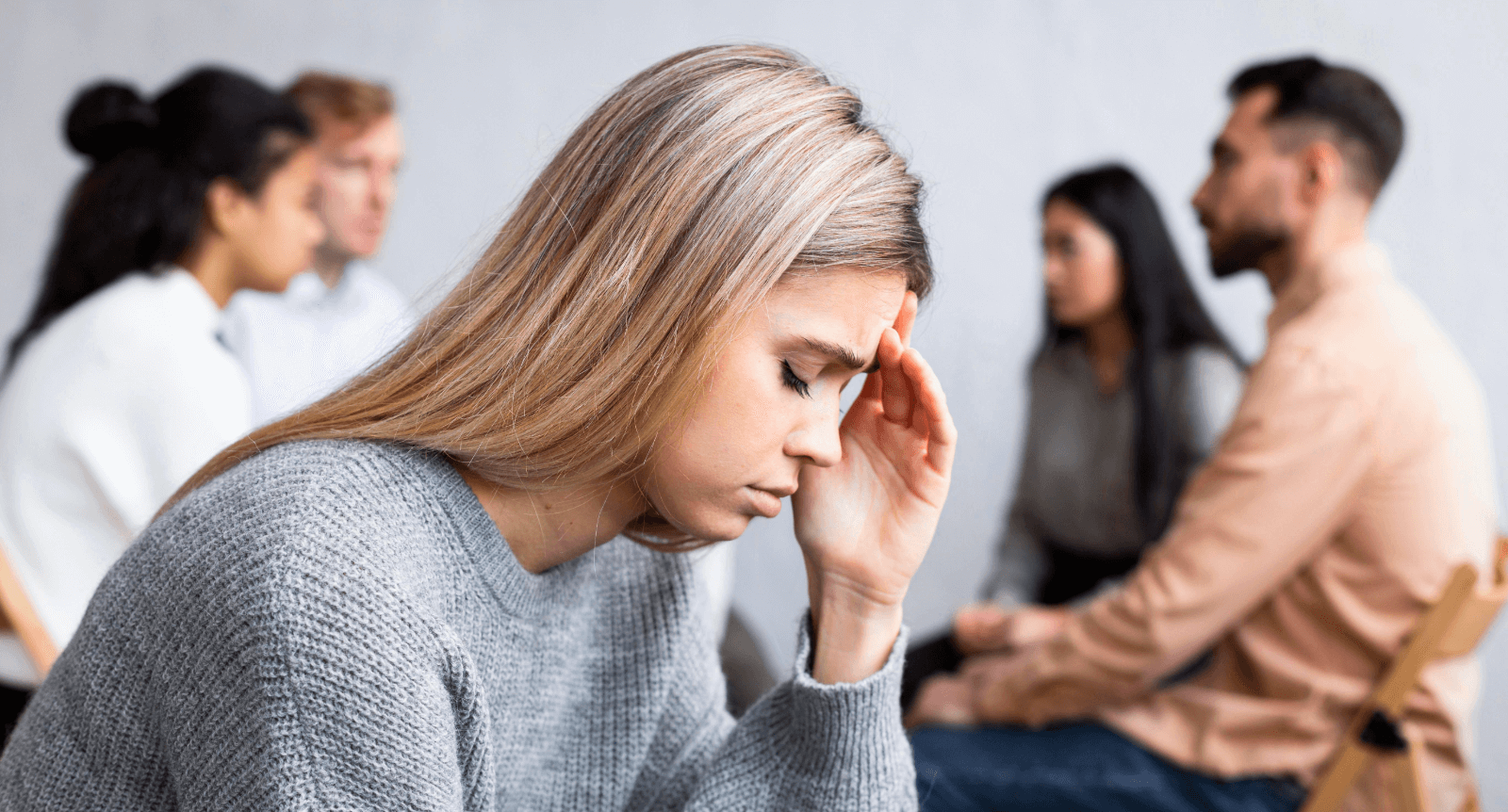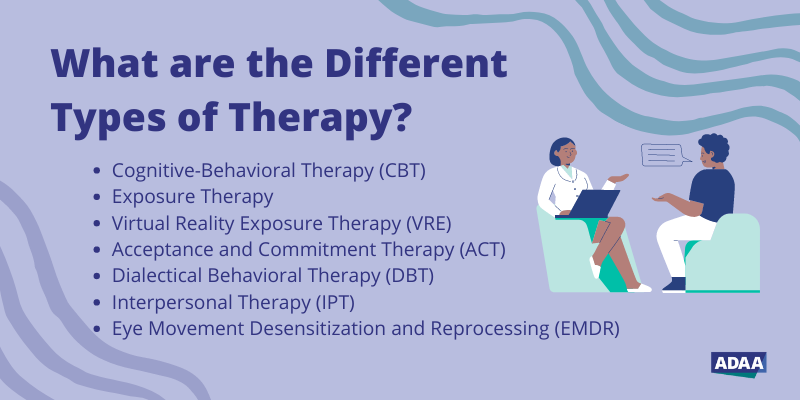Gain control of your life with counselling for anxiety support today
Gain control of your life with counselling for anxiety support today
Blog Article
Exploring Various Approaches in Counselling for Anxiousness Condition for Long-term Modification
When dealing with anxiousness disorders, it's important to discover a range of therapy strategies. Each method provides unique understandings and devices to help you manage your signs efficiently. You might discover that integrating strategies can yield the best results. Comprehending the subtleties of these strategies is key to promoting enduring modification. What if the best combination could release a brand-new degree of psychological health for you?
Recognizing Anxiousness Disorders: A Short Review
Anxiousness problems, which influence numerous people worldwide, can considerably affect life. You may experience frustrating feelings of concern or stress that seem unmanageable. These feelings can result in physical signs like a racing heart, sweating, or perhaps dizziness. Typical types of anxiety disorders consist of generalised stress and anxiety disorder, panic disorder, and social anxiety condition. Each has unique indicators, yet they all share a propensity to interrupt your regular and relationships.Understanding the source of your anxiety is vital. It might come from genetics, brain chemistry, or life experiences. Acknowledging your triggers can help you manage your reactions better. It's essential to bear in mind that you're not the only one in this struggle. Lots of people face similar challenges, and looking for assistance is a solid action toward sensation better. By learning more about stress and anxiety problems, you're currently on the path to understanding and handling your problem more successfully.
Cognitive-Behavioral Treatment: Testing Unfavorable Idea Patterns

Identifying Adverse Thought Triggers
When you experience minutes of distress, acknowledging the certain triggers behind your unfavorable thoughts can be essential in managing anxiety. Start by paying attention to circumstances that prompt sensations of worry or fear. Is it a crowded area, a future deadline, or a discussion with certain people? Write down these circumstances in a journal. This will help you identify patterns in your thinking. Additionally, notice physical feelings that accompany your negative ideas, like a racing heart or tightness in your breast. By identifying these triggers, you gain understanding right into what's fueling your anxiousness. Understanding these connections is the initial step in challenging those ideas and ultimately reclaiming control over your psychological responses.

Replacing Ideas With Positives
Testing negative idea patterns is an essential step in changing your frame of mind and minimizing anxiousness. You may frequently discover on your own trapped in cycles of insecurity or devastating thinking. Rather than allowing these ideas dictate your feelings, practice replacing them with reasonable options or positive affirmations. For example, when you assume, "I can't manage this," shift it to, "I can manage difficulties one action at once (Counseling services for anxiety)." This basic adjustment can greatly impact your emotion. Consistently determining and responding to these adverse ideas assists produce a healthier internal dialogue. Remember, it takes time and effort, but consistently practicing this method can result in long lasting change, encouraging you to deal with anxiety with restored self-confidence and durability
Building Coping Approaches With Each Other
Replacing adverse ideas is just the start of managing anxiety efficiently. To develop long-term adjustment, you require to develop coping techniques that encourage you. Cognitive-Behavioral Treatment (CBT) aids you identify and challenge those purposeless idea patterns. Together, you and your therapist can discover how these ideas impact your feelings and behaviors.Start by developing practical techniques, like journaling or mindfulness exercises, that allow you to face stress and anxiety head-on. When you face your concerns progressively, you'll discover to respond in different ways.

Mindfulness and Acceptance-Based Approaches: Growing Present-Moment Awareness
As you browse the complexities of anxiety, incorporating mindfulness and acceptance-based approaches can significantly improve your ability to cultivate present-moment understanding. By concentrating on the present moment, you'll discover that you can observe your thoughts and feelings without judgment. This technique aids you recognize your anxiety without feeling bewildered by it.Engaging in mindfulness workouts, such as deep breathing, body scans, or guided reflections, allows you to ground yourself in your existing experience. Acceptance-based techniques urge you to accept your emotions instead of fight against them. When you approve your feelings, they shed their power over you.Incorporating these practices into your everyday routine can transform just how you reply to anxiousness. You'll create strength and discover to browse stressful situations with better simplicity. Ultimately, growing present-moment recognition lays the foundation for enduring change, equipping you to lead a more satisfying life.
Direct Exposure Therapy: Facing Anxieties Progressively
Direct exposure treatment helps you confront your fears in a progressive way, making it less overwhelming. You'll discover strategies to face anxiety-provoking circumstances detailed, while also developing coping approaches to manage your reactions. This technique encourages you to take control and minimize anxiousness over time.
Gradual Direct Exposure Strategies
When facing anxiousness, slowly facing your anxieties can be a powerful means to regain control. This method, referred to as progressive exposure, entails slowly subjecting yourself to the circumstances or items that activate your anxiousness. Beginning with much less challenging circumstances and progressively work your method up to more tough ones. If you're worried of public speaking, you might begin by talking in front of a mirror, then proceed to sharing ideas with a close friend, and ultimately deal with a little group. Each action helps desensitize you to the fear, building your confidence in time. Bear in mind, it's essential to speed Bonuses yourself and celebrate little success as you relocate through this procedure, strengthening your ability to handle stress and anxiety efficiently.
Building Coping Approaches
Building effective coping techniques is necessary for taking care of stress and anxiety, specifically as you face your worries progressively. One effective method is exposure treatment, where you begin by encountering your worries in a controlled manner. Start with less intimidating scenarios and slowly function your method up to even more tough situations. This steady direct exposure assists desensitize you to stress and anxiety causes, making them less overwhelming.Incorporate relaxation strategies, such as deep breathing or mindfulness, to calm your mind throughout direct exposure. Track your development, celebrating small victories in the process to increase your self-confidence. Bear in mind, it's fine to take your time; the objective isn't perfection yet stable enhancement. By building these strategies, you'll equip on your own to navigate anxiousness and accept life much more totally.
Psychodynamic Treatment: Discovering Origin of Anxiety
Psychodynamic treatment checks out the unconscious mind, revealing the source of your anxiousness - Counseling services for anxiety. By analyzing your ideas, feelings, and past experiences, this technique helps you discover underlying problems and unresolved problems that might contribute to your current anxiousness. You'll collaborate Continue with a therapist to explore youth experiences, partnerships, and psychological patterns that shape your feedbacks today.As you gain understanding into these much deeper layers of your mind, you'll start to acknowledge exactly how previous occasions influence your present behavior. This understanding can bring about catharsis, allowing you to process emotions you could have suppressed.Through the therapeutic partnership, you can additionally determine defense devices that might have developed in time, providing a more clear path to transform. Ultimately, psychodynamic treatment outfits you with the tools to resolve your stress and anxiety at its core, promoting long lasting transformation in your emotional health
Integrative and Alternative Strategies: Combining Techniques for Greater Efficacy
Incorporating different healing methods can improve your trip toward taking care of anxiousness better. By incorporating aspects from cognitive-behavioral treatment, mindfulness practices, and holistic strategies, you can create a customized method that resolves your unique needs. You could use cognitive-behavioral techniques to challenge negative idea patterns while incorporating mindfulness exercises to ground yourself in the existing moment.Additionally, checking out alternative practices such as yoga or reflection can promote relaxation and reduce stress and anxiety symptoms. This blend allows you to create better self-awareness and resilience.Experimenting with these diverse methods can aid you uncover what resonates most with you. Bear in mind, it has content to do with discovering a harmony that functions, instead of sticking to a solitary method. This integrative method not just provides prompt relief however additionally cultivates long-term skills for managing anxiety, encouraging you to redeem control over your life.
The Role of Assistance Equipments: Structure Durability With Connection
While it might seem that taking care of anxiety is a solitary journey, having a strong support group can play a crucial role in your resilience. Bordering yourself with compassionate pals, family, or assistance groups produces a safe room where you can honestly share your experiences and sensations. When you get in touch with others, you advise on your own that you're not the only one in this struggle.These partnerships use motivation and can offer useful coping techniques that have worked for others. It's likewise a chance to obtain viewpoint; buddies can help you see circumstances in different ways, minimizing sensations of isolation.Moreover, psychological support promotes a sense of belonging, which can greatly reduce anxiousness symptoms. By leaning on your support group, you can develop strength and deal with challenges better. Keep in mind, connecting for aid is an indicator of stamina, and it can make all the difference in your journey toward handling anxiety.
Frequently Asked Questions
What Are the Common Signs of Stress And Anxiety Disorders?
You could experience restlessness, exhaustion, difficulty focusing, irritability, muscle mass tension, and sleep disruptions. Physical signs can consist of rapid heartbeat, sweating, and trembling. Recognizing these signs early can assist you look for appropriate support and therapy.

The Length Of Time Does Therapy Usually Last for Stress And Anxiety Conditions?
Therapy for stress and anxiety conditions generally lasts anywhere from a couple of weeks to a number of months. It actually depends upon your private requirements, progression, and the methods your therapist utilizes to help you handle your anxiety effectively.
Can Drug Be Utilized Alongside Therapy for Anxiety?
Yes, drug can absolutely be used alongside treatment for anxiety. Combining both techniques commonly enhances therapy performance, aiding you take care of symptoms while checking out underlying concerns with therapy. Constantly consult your doctor for customized guidance.
Exist Self-Help Techniques for Taking Care Of Anxiety?
Yes, there are several self-help approaches for handling anxiousness. You can exercise mindfulness, involve in regular exercise, preserve a well balanced diet plan, establish a routine, and use deep breathing techniques to help in reducing stress and anxiety symptoms efficiently.
How Do I Know if I Required Professional Assistance for Anxiousness?
You should consider seeking specialist help for stress and anxiety if it disrupts every day life, creates substantial distress, or if self-help methods aren't functioning. Trust fund your reactions; connecting can lead to better coping abilities and support. Typical kinds of anxiety problems include generalised stress and anxiety condition, panic problem, and social stress and anxiety problem. When you encounter moments of distress, acknowledging the certain triggers behind your unfavorable thoughts can be vital in taking care of anxiety. Replacing negative thoughts is only the beginning of taking care of anxiety properly. By analyzing your thoughts, sensations, and past experiences, this technique helps you discover underlying disputes and unsettled problems that might add to your current anxiety. It's also a chance to gain perspective; close friends can help you see scenarios in different ways, lowering sensations of isolation (Counseling services for anxiety).Moreover, psychological support promotes a feeling of belonging, which can considerably ease stress and anxiety signs
Report this page